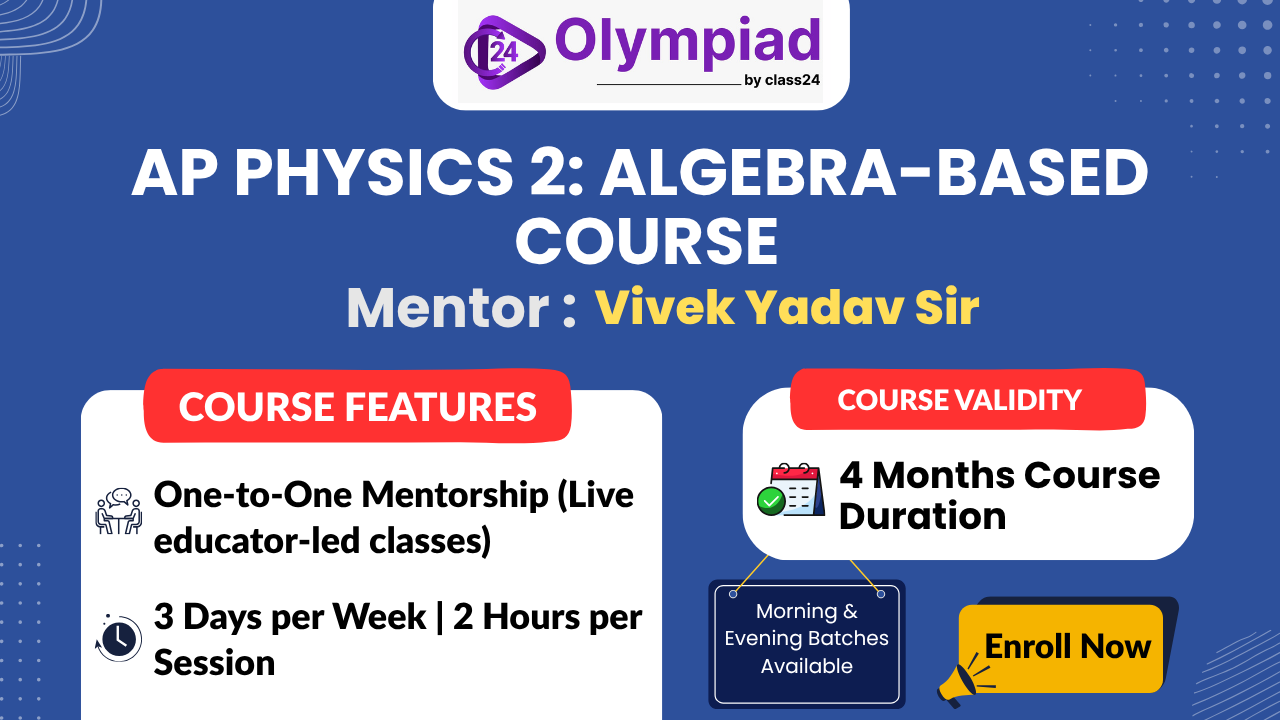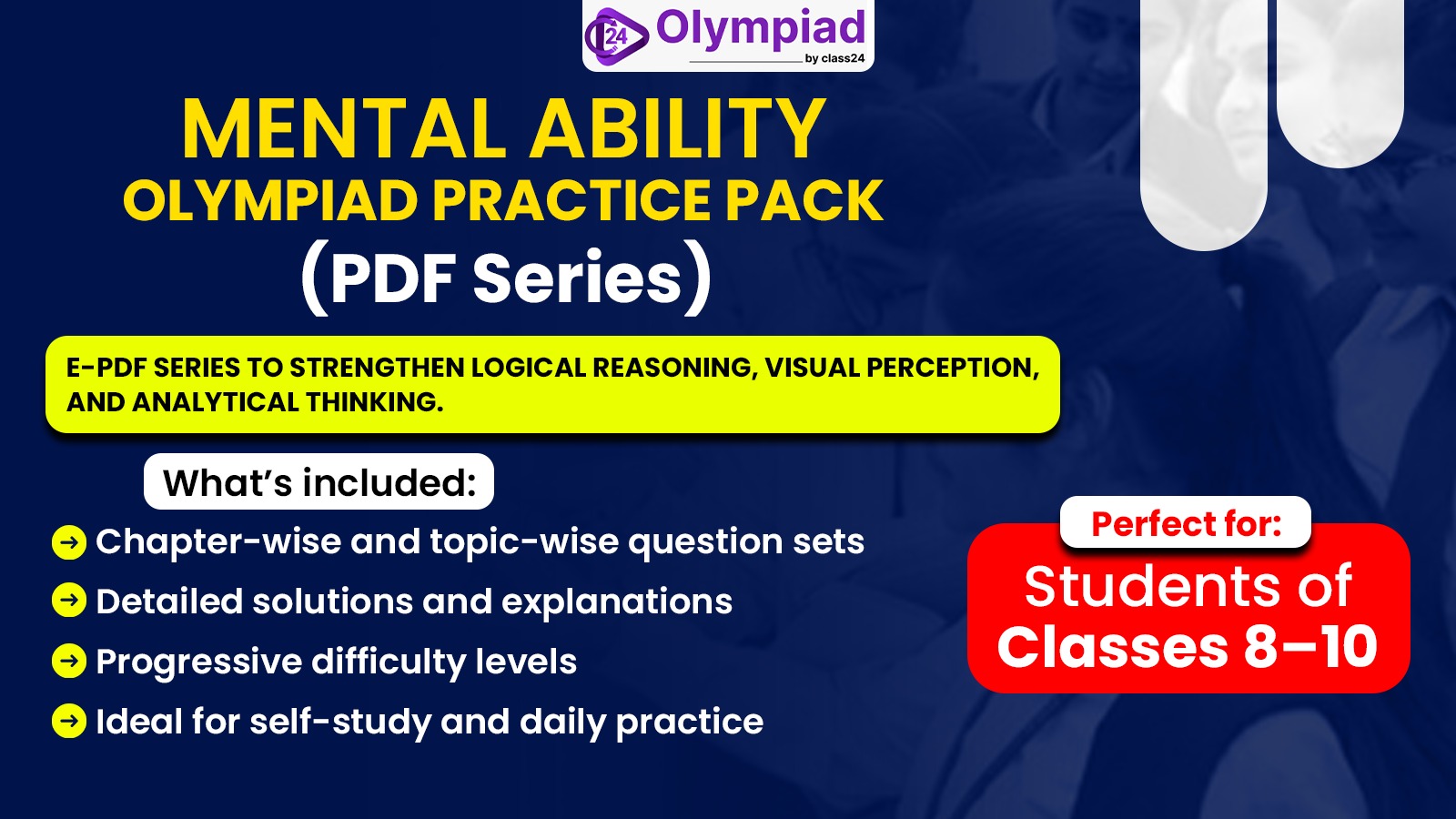Mental Ability Olympiad Assessment 2025 – Unlock Your Logical Thinking Power
Mental ability is not just a subject, it is the science of smart thinking. The Mental Ability Olympiad Assessment 2025 is aimed at determining the logical reasoning, analysis, and interpretation of the information by a student. This Olympiad is not like regular exams, because it does not test what you have memorized but it tests the way you think, how quickly you can define the patterns and how practically you can get to a solution.
In this modern world where analytical skills are more important than rote learning, the Mental Ability Olympiad is an important aspect in developing the minds of the youth. It prepares a ground to succeed in all the subjects and all the competitive exams including school-level Olympiad and national-level aptitude test.
What is the Mental Ability Olympiad?
The Mental Ability Olympiad is a competition based on reasoning and it measures the aspect of the overall intelligence quotient (IQ) and logical ability of students in primary and secondary levels. It assists the students to empower their mind of problem solving and decision making.
The test incorporates various reasoning; verbal, non-verbal, analytical, and quantitative so as to have a complete test of the thinking ability. Students who take part in this Olympiad attain finer observation, quicker thinking, and logical problem solving attitude.
Objectives of the Olympiad:
- Encourage logical, analytical, and critical thinking.
- Identify and nurture high-potential reasoning talent.
- Improve problem-solving and decision-making under pressure.
- Help students perform better in scholarship and entrance exams.
Mental Ability is the foundation of intelligence — mastering it helps in every subject, from mathematics to coding.
Professional Online Tutoring in Science & Math
Unlock your child’s true potential with expert-led, interactive online classes that make complex concepts simple, spark curiosity, and build lasting confidence in STEM subjects.
- Customized learning plans for every grade
- Live, engaging sessions with experienced educators
- Globally aligned curriculum for future-ready skills
Book a 1-on-1 Counseling Session

Why Mental Ability Matters for Every Student
Every top-performing student has one common strength — clarity of thought. The Mental Ability Olympiad focuses on developing this clarity. Here’s why it’s important:
- Strengthens Logical Thinking: Students learn to find connections and patterns beyond memorization.
- Improves Academic Performance: Logical reasoning enhances mathematical and scientific understanding.
- Boosts Confidence: Solving puzzles and analytical questions builds mental discipline and confidence.
- Prepares for Competitive Exams: Aptitude and reasoning sections are common in exams like NTSE, Olympiads, and future entrance tests.
- Enhances Decision Making: Students become better at analyzing situations and making quick, accurate decisions.
Reasoning is the only subject that improves your mind, not just your marks.
Detailed Syllabus for Mental Ability Olympiad
The syllabus for the Mental Ability Olympiad is structured to cover a wide range of reasoning concepts. It grows in complexity according to the student’s class level but maintains a focus on practical reasoning ability.
- Verbal Reasoning: Coding-Decoding, Series, Analogy, Classification, Blood Relations, Logical Sequences — language-based logic and understanding relationships between ideas.
- Non-Verbal Reasoning: Mirror Images, Water Images, Paper Folding, Embedded Figures, Figure Series — visual analysis and spatial thinking.
- Analytical Reasoning: Puzzle Test, Order and Ranking, Syllogism, Statement & Conclusion — multi-step logic and deduction.
- Quantitative Reasoning: Number Series, Simplification, Arithmetic Logic, Mathematical Puzzles — mathematical reasoning without heavy calculation.
- Critical Thinking: Data Sufficiency, Cause & Effect, Pattern Analysis — evaluating information and drawing conclusions.
The aim is not memorization, but the ability to think independently and reason effectively.
Mental Ability Olympiad Exam Pattern (General Format)
The paper structure encourages speed, accuracy, and critical thinking. Students must complete all questions within the time limit, which improves their time management for future competitive exams.
- Mode of Examination: Online / Offline (depending on organizer)
- Type of Questions: Multiple Choice Questions (MCQs)
- No. of Questions: 40 to 60 (class-dependent)
- Total Marks: 60 to 100
- Duration: 45 to 60 minutes
- Marking Scheme: 1 mark per correct answer (no negative marking)
Key Benefits of Mental Ability Olympiad
- Improves Problem-Solving Capability: Each question is meant to increase the students to think differently. This assists them in knowing how to tackle new or unknown problems fearlessly.
- Builds Logical and Analytical Thinking: The process of reasoning regularly exercises the brain to analyze information, make out concealed patterns, and draw logical conclusions.
- Boosts Concentration & Focus: Mental ability questions involve full attention and concentration that help the students to be more attentive in every subject.
- Preparation for Future Exams: Most national and international tests such as NTSE, NSEJS, and even UPSC aptitude tests have reasoning-based questions. The early preparation in the form of Olympiads gives a lifetime benefit.
- Enhances Recollection and Observation: Recollection and visual observation develop naturally when students practice problems based on patterns repeatedly.
These are the skills that remain with you even after the exam; they become a part of your thinking and learning process.
How to Prepare for Mental Ability Olympiad
Preparation for this Olympiad is not about memorizing formulas; it’s about developing the habit of logical thinking. Here are a few effective strategies:
- Understand the Concept Behind Every Question: Don’t just learn answers; learn the logic that leads to them.
- Practice Daily: Solve at least 10–15 reasoning problems daily to build consistency.
- Attempt Mock Tests: Timed tests simulate real exam pressure and help improve speed.
- Review Mistakes: Analyze where you went wrong and try to understand the reasoning behind the correct answer.
- Diversify Practice: Include both verbal and non-verbal reasoning in your preparation.
- Solve Puzzles and Brain Games: Sudoku, riddles, and crosswords help improve logical flow and pattern recognition.
Consistency, not cramming, is the secret to mastering mental ability.
Students’ performances are assessed on several key parameters:
- Accuracy: Number of correct answers.
- Speed: Time taken to complete the test.
- Logical Application: Ability to use reasoning instead of guesswork.
- Conceptual Understanding: Depth of comprehension in analytical questions.
- Consistency: Improvement over multiple assessments.
Detailed score reports often highlight strengths and areas for improvement — giving students clear direction for further preparation.
Importance of Early Exposure to Mental Ability Tests
The exposure to reasoning-based tests at an early age increases the flexibility and mental agility of a student. It promotes curiosity, exploration, and problem-solving — core 21st-century learning skills.
Students who regularly attempt such Olympiads:
- Learn faster across subjects.
- Perform better in aptitude-based school exams.
- Handle exam pressure calmly.
- Show better academic curiosity and motivation.
Reasoning helps students think for themselves — and that’s the true goal of education.
Recognition & Awards
Top performers in the Mental Ability Olympiad are usually awarded medals, certificates, and performance reports. But the real reward is mental growth and the confidence that comes with it. Even participants who don’t top the exam gain significant improvement in reasoning ability and academic sharpness.
Such recognitions also strengthen a student’s academic profile for scholarships and higher-level Olympiad qualifications.
How Mental Ability Helps in Real Life
The beauty of reasoning is that it doesn’t just help in exams — it improves your entire thought process. Mental ability training teaches you to analyze every situation, break down problems, and find effective solutions.
Examples:
- Identifying the fastest route to a solution in maths.
- Understanding logical arguments in science.
- Making structured plans in daily life.
Once a student develops reasoning habits, it reflects everywhere — from academics to decision-making, teamwork, and leadership.
Long-Term Benefits
- Builds critical thinking and mental endurance.
- Encourages independent learning and curiosity.
- Develops structured problem-solving methods.
- Enhances exam temperament for all aptitude-based tests.
- Promotes lifelong learning through reasoning and logic.
Mental ability isn’t learned once; it’s built every day.
Conclusion
The Mental Ability Olympiad Assessment is more than an exam — it’s a journey that builds the skills of smart thinking, logical analysis, and structured problem solving. Whether you’re a middle-school student preparing for Olympiads or a high-school learner targeting aptitude-based exams, mental ability is your foundation.
By regularly practicing reasoning, you train your mind to stay sharp, focused, and adaptable — qualities that define success in any field.
Start your reasoning journey today and make logical thinking your greatest strength. Because in the world of competition, your ability to think differently is your real superpower.
AP Physics 2: Algebra-Based (Test-1)
Download the complete AP Physics 2: Algebra-Based Practice Test-1 including both Multiple-Choice Questions (MCQs) and Free Response Questions (FRQs). This test follows the official exam pattern to help you master advanced physics topics like Fluids, Thermodynamics, Electricity, Magnetism, Optics, and Modern Physics.
AP Physics 2 – Test-1 (Full Paper)
- Section I: 40 Multiple-Choice Questions | 1 hour 20 min | 50% of total score
- Section II: 4 Free-Response Questions | 1 hour 40 min | 50% of total score




